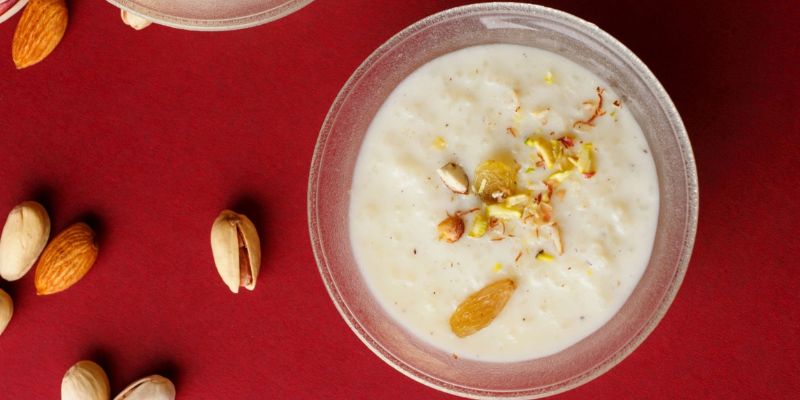When it comes to exploring the culinary landscape of Chennai, one cannot miss the opportunity to indulge in the rich and diverse Tamil Brahmin cuisine. Known for its unique flavors, aromatic spices, and traditional cooking methods, Tamil Brahmin cuisine has carved a special place in the hearts and palates of food enthusiasts.
Chennai, the capital city of Tamil Nadu, is a vibrant culinary hotspot that celebrates a multitude of food cultures. From street food to fine dining, the city offers a delightful array of gastronomic experiences. However, it is the tantalizing taste and soulful dishes of Tamil Brahmin cuisine that truly capture the essence of this culinary melting pot.
Tamil Brahmin cuisine holds a significant place in the culinary heritage of Chennai. Rooted in tradition and passed down through generations, this cuisine is a reflection of the rich cultural heritage of the Tamil Brahmin community. From simple home-cooked meals to elaborate feasts, Tamil Brahmin cuisine is characterized by its emphasis on vegetarianism, the use of homemade ingredients, and the art of blending spices to create a harmonious symphony of flavors.
In this article, we will delve into the world of popular Tamil Brahmin cuisine found in Chennai. From breakfast delights to comforting main courses and delectable desserts, we will explore the unique dishes that make Tamil Brahmin cuisine a standout culinary experience. So, prepare your taste buds for a journey through the aromatic flavors and cultural significance of Tamil Brahmin cuisine in the heart of Chennai.
Contents
Tamil Brahmin Cuisine: A Culinary Legacy
Tamil Brahmin cuisine is a culinary tradition that showcases the rich flavors and cultural heritage of Tamil Nadu. Rooted in ancient customs and beliefs, this cuisine holds a special place in the hearts and homes of Tamil Brahmin households. From elaborate feasts to everyday meals, Tamil Brahmin cuisine reflects a deep reverence for tradition and an emphasis on vegetarianism.
The roots of Tamil Brahmin cuisine can be traced back to the ancient scriptures and religious practices of the region. Brahmins, as a priestly community, have historically adhered to a vegetarian diet, considering it pure and essential for spiritual and ethical reasons. This reverence for vegetarianism is deeply ingrained in Tamil Brahmin culture and is reflected in the culinary choices of the community.
One of the distinctive features of Tamil Brahmin cuisine is the use of homemade ingredients and traditional cooking methods. From grinding fresh spices to preparing ghee (clarified butter) at home, every element of the meal is carefully crafted with love and devotion. This attention to detail not only adds depth to the flavors but also preserves the authenticity of the dishes.
The art of blending spices is another hallmark of Tamil Brahmin cuisine. Each spice is carefully selected and roasted to perfection, enhancing the aroma and flavor of the dishes. The harmonious combination of spices creates a symphony of tastes that tantalizes the palate and leaves a lasting impression.
When it comes to flavors, Tamil Brahmin cuisine offers a diverse range of tastes, from subtle and mild to bold and tangy. The use of tamarind, curry leaves, coconut, and asafoetida (hing) adds distinctiveness to the dishes. The cuisine balances flavors meticulously, creating a delightful harmony that is both satisfying and comforting.
Tamil Brahmin cuisine not only nourishes the body but also nourishes the soul. It represents a way of life, a celebration of heritage, and a connection to the roots. The recipes and cooking techniques have been passed down through generations, preserving the cultural legacy and traditions.
In the following sections, we will explore the traditional cooking methods, ingredients, and flavors that define Tamil Brahmin cuisine. From the aromatic sambar to the crispy dosas and delectable sweets, get ready to embark on a flavorful journey through the culinary heritage of Tamil Nadu.
Exploring the Flavors of Tamil Brahmin Cuisine: 7 Popular Delicacies in Chennai
Chennai, the cultural capital of Tamil Nadu, is not only known for its bustling city life and historical landmarks but also for its vibrant culinary scene. One of the culinary treasures that Chennai proudly showcases is the delectable Tamil Brahmin cuisine. This cuisine, with its rich heritage and distinct flavors, offers a delightful culinary experience for both locals and visitors. Let’s dive into the world of Tamil Brahmin cuisine and explore seven popular dishes that grace the tables of Chennai.
- Sambar – No Tamil Brahmin meal is complete without a bowl of aromatic sambar. Made with freshly ground spices, lentils, and a medley of vegetables, this tangy and flavorful lentil soup is a staple in Tamil Nadu. It pairs perfectly with rice, idli, dosa, and vada.
- Rasam – Rasam is a comforting and tangy soup that is a favorite among Tamil Brahmins. Made with tamarind juice, tomatoes, spices, and herbs like curry leaves and coriander, rasam is known for its soothing qualities and ability to aid digestion.
- Idli – Soft, fluffy, and steamed to perfection, idli is a beloved breakfast item not just in Chennai but throughout South India. Made from fermented rice and lentil batter, these round and spongy cakes are often served with sambar and coconut chutney.
- Dosai – Crispy on the outside and soft on the inside, dosai is another iconic dish of Tamil Brahmin cuisine. This thin, savory pancake made from fermented rice and lentil batter can be enjoyed plain or filled with a variety of flavorful stuffings like potato masala or paneer.
- Pongal – Pongal is a savory rice dish cooked with lentils, black pepper, cumin, and ghee. This hearty and comforting dish is often prepared during the harvest festival of Pongal and is enjoyed as a breakfast or lunch option.
- Curd Rice – A simple yet satisfying dish, curd rice is a staple in Tamil Brahmin households. Cooked rice is mixed with yogurt, seasoned with mustard seeds, and curry leaves, and garnished with pomegranate seeds or grated carrots. It provides a refreshing and cooling effect, making it an ideal choice for hot summers.
- Payasam – End your Tamil Brahmin culinary journey with a sweet treat – payasam. This rich and creamy dessert is made with rice, milk, and jaggery, and flavored with cardamom and saffron. It is often garnished with nuts and raisins, adding a delightful crunch to each spoonful.
These are just a few highlights of the diverse and flavorful Tamil Brahmin cuisine found in Chennai. From comforting classics to festive specialties, each dish showcases the culinary expertise and cultural heritage of this vibrant community. So, the next time you visit Chennai, don’t miss the opportunity to indulge in these seven popular Tamil Brahmin delicacies and experience the true essence of this remarkable cuisine.
Conclusion
Tamil Brahmin cuisine in Chennai is a culinary journey that encapsulates tradition, flavors, and cultural heritage. In this article, we have delved into the vibrant world of Tamil Brahmin cuisine, highlighting seven popular dishes that have won the hearts and palates of locals and visitors alike. From the tangy sambar to the comforting curd rice, each dish carries a story and reflects the art of blending spices that is unique to this cuisine.
Tamil Brahmin cuisine is not just about taste; it is a reflection of the rich heritage and culinary traditions of the Tamil Brahmin community. The emphasis on vegetarianism, the use of homemade ingredients, and the delicate balance of spices create a gastronomic experience that is both soul-satisfying and memorable.
We invite you to embark on your own culinary adventure and explore the popular Tamil Brahmin dishes mentioned in this article. Visit the renowned restaurants and eateries in Chennai that serve these delicacies with love and authenticity. Let the aroma of sambar and rasam entice your senses, and allow the flavors of idli and dosa to transport you to the heart of Tamil Nadu.


TY for this entry, it has been totally helpful to me! Way better written than other bloggers out there.
Your writing style is engaging, and the information is presented clearly. Thanks for this informative piece!
Great post! The information provided is so valuable. Thanks for sharing!